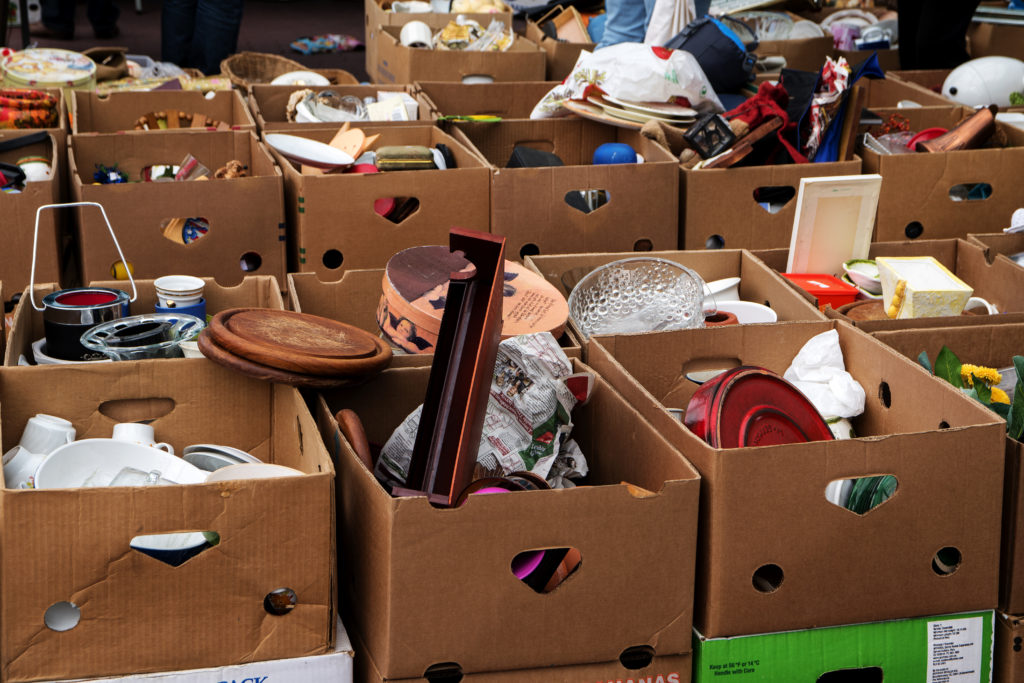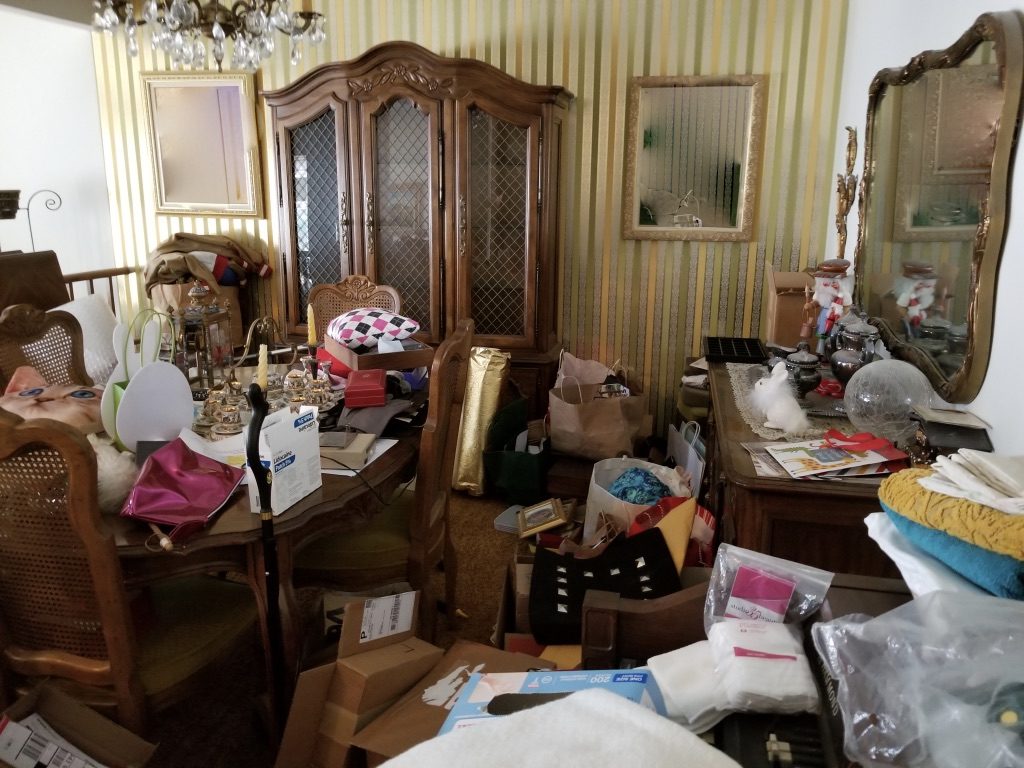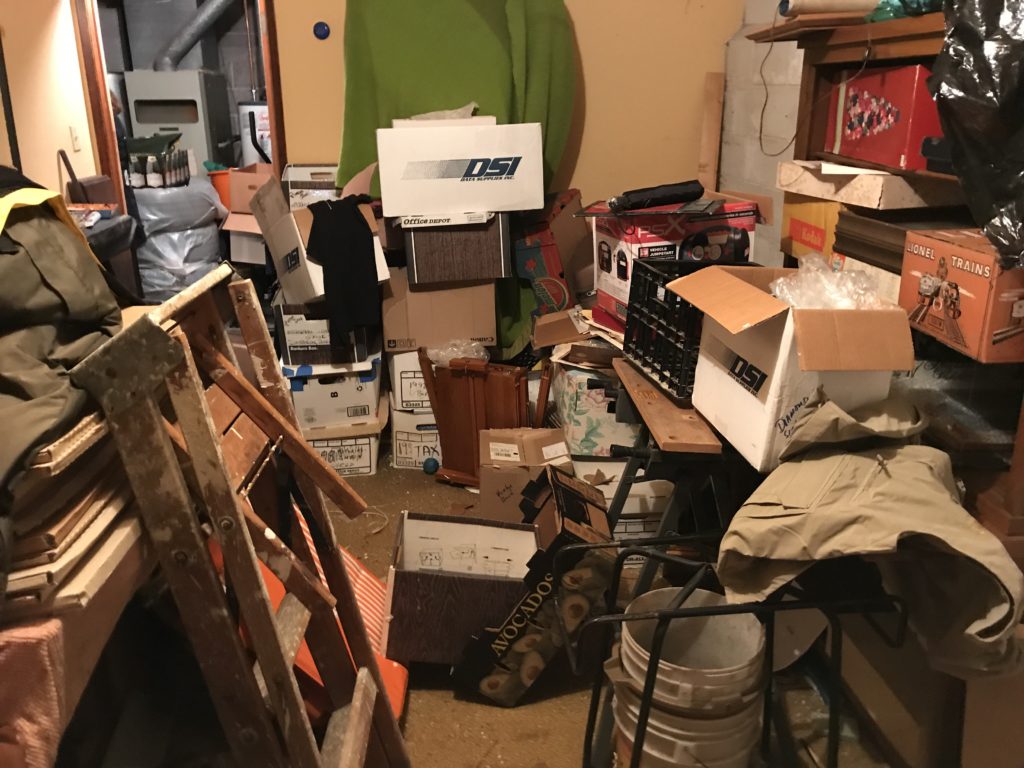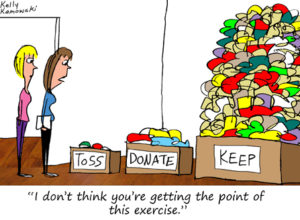
First the good news.
After living in the same home for 35 years, you’ve decided to sell your house to move into a smaller home that better fits your plans for the future.
Now the bad news.
After living in the same home for 35 years, you’ve decided to sell your house to move into a smaller home but now you have to decide what you want to take with you to your new home and then figure out what to do with everything else.
Here’s the ugly truth. You’ll have to get past the overwhelm if you want to make this happen. Action in the form of decisions is the best antidote. However, if you need help, consider hiring a professional organizer or move manager, especially if you are a senior or not as strong as you used to be. Breaking your back or leg should not be a part of your moving plan.
Start by looking around. Every room in your home has surfaces, drawers, closets and cabinets containing – dare I say filled with – a lifetime of objects and memories – enjoyed, received, purchased, stored, used, never used, never discarded.
You suddenly think, what am I going to do with all this stuff? You wonder if anyone wants your ten year old sleeper sofa, the one you bought so your grandkids could sleep over but now those kids are in high school or college and they’ve moved to new cities.
You think about the china and the silver that you haven’t used in years and that your kids have outright told you, “thanks Mom but no thanks, I have no place to put it and and even if I did, we’d never use it. I can’t even put it in the dishwasher!”
You’re not alone. It’s a dilemma faced by millions of people retiring or nearing retirement, every year.
So what do you do?
Start by getting clear about why you are moving.
Perhaps, you’re going to be closer to your grandkids. Or, you’re leaving the suburbs, and selling the house that’s outgrown you to return to downtown so you can walk to the stores you love and be closer to things you enjoy.
Maybe you’re moving into a condo or a smaller one-story home so you don’t have to deal with three flights of stairs anymore.
Maybe you’re moving back to your hometown where the air is cleaner and life is simpler.
Whatever the reason, get a crystal clear picture of what your future could look like and how you’ll know you got there.
Picture yourself playing with your grandkids, sharing coffee with a friend or taking a walk down that old familiar road with your dog.
You’ll need to have this picture fixed in your mind. Why? Because getting downsized and organized to move, and then planning and executing the move can at times be a mind-numbing, physically taxing and even tedious process. Add to that the time it takes to get unpacked, settled and adjusted to your new home, neighborhood or community. It’s hard adjusting to your new life… even when it’s the one you chose to have!
Once you’ve prepared yourself mentally, it’s time to start making some big decisions. If you’ve already found a new home, that will make downsizing and planning for your move predictable since you’ll know ahead of time how much space you have to move into.
But let’s say you want to start downsizing now, even though you don’t know where you’re moving. You just know you want less in your life and to be free of the burden of all the stuff!
First, start with what you know. Decide and mark (with bright green or blue painter’s tape) the items in your house that you know, for certain, you are taking with you. Make the labels as visible as possible. Go through room by room and “read the room” like you read a book, from left to right. Mark each furniture item that takes up floor space from the left side of the door or entry way until you reach the right side of the door or entry way. Ignore the household items, just do furniture, large lamps and hung art work for now.
If you have an extremely cluttered room such as a garage or office or an old bedroom that has become a “dumping ground” for undecided items, don’t tackle these first. That’s like expecting to press a 500lb weight when you haven’t worked out in years. You’ll hurt yourself!
Build your decision-making muscles slowly. Instead, start with a reasonably uncluttered area and make decisions about items contained in these rooms first.
Sort usable items you don’t want and could be donated, from trash. Use white, tall kitchen plastic bags for soft items you no longer want like clothing, purses, and belts and “banker” or file storage size boxes for heavier or fragile items. If possible, use boxes with cut out handles. It makes it easier to transport donated items to your car or to another part of your home for staging. Never use large boxes for donations. (Leave those for the movers).
Use tall paper lawn bags (available at most hardware stores) for recycling paper and heavyweight plastic bags for trash and non-usable or broken items. Get the trash out as soon as the bags are full to make space for your next task. Seeing empty space is a great motivator!
Old blankets and linens can be donated to a local animal shelter. Used bed pillows are generally not donate-able and should be trashed unless your city (few do) offers a fabric recycling program.
Moving is probably the only time when you will finally look at the paper you have been saving.
Don’t even think about tackling paper until you’ve first downsized your household items. If you do have a large quantity of paper – several file cabinets worth — consider the fact that 80% of what most people keep they never look at again.
If possible peruse your cabinets by file, not by document. If you’re concerned you may accidentally toss something confidential, err on the side of placing the entire file in a file-storage sized box marked “shred.” Set all your “shred” boxes aside and either arrange for them to be picked up by a local shredding company or you can search “free shredding events near me” online. Insurance agents and banks often sponsor free, public shredding events, for promotional purposes.
Time will determine just how and where your unwanted items get disbursed. In other words, the longer lead time you have, the more thoughtful you can be about where your discarded items end up.
If you’ve lived in your home for more than ten years, expect to pay for hauling or trash removal. Take advantage of your local waste management company’s free bulky item pick-up service if available but keep in mind you may still have to pay someone to help you get large and heavy items such as old appliances, mattresses and un-donateable furniture to your curb for pick up.
Save your back! Take advantage of whatever charities in your area offer truck pick-up but keep in mind you may have to book up to several weeks in advance and what is taken is always at the driver’s discretion. Check out DonationTown.org to schedule a truck pick up in your area.
Most household items will be accepted but furniture is more difficult to donate unless it’s collectible or in demand (e.g., mid-century modern) in good condition and less than 5 years old. If you have time, you can try posting items on free web-based sites such as Craigslist, Nextdoor, Facebook Marketplace, Freecycle.org, LetGo etc. Check to see if there is a “free stuff” group on your favorite social media site, if you use one, such as Facebook or Instagram.
There are also services like MaxSold which is an online auction site that will provide local help to get almost all your household items sold at below-market prices and picked up in a day or two.
The biggest advantage of selling or donating your large furniture is you don’t have to pay to have these items moved. Add to that, they are being purchased, presumably, by someone who wants them. The disadvantage is that you will have to be okay with prospective buyers coming to your home but you can either be there or agree to have representatives manage the sale for you.
Once your house is emptied of all sold and donated items as well as debris, your move will be much simpler. Contact one or two reputable movers in your area to get onsite estimates for packing, moving and insuring your move.
If possible, take advantage of their packing services, at least for your high value and fragile items, especially if you are moving out of state or more than 50 miles away. It’s well worth the added expense since it’s less likely things will arrive damaged if packed professionally. In the event that something does break, the liability rests with the movers, not you, and therefore you can file a claim with your mover’s insurance company or your own homeowners insurance if they cover your move.
After your items are moved, you can now turn the house over to your real estate agent to reap the most value from your home’s sale and begin living out the the vision you imagined! Chances are, it will be even better than you expected.










